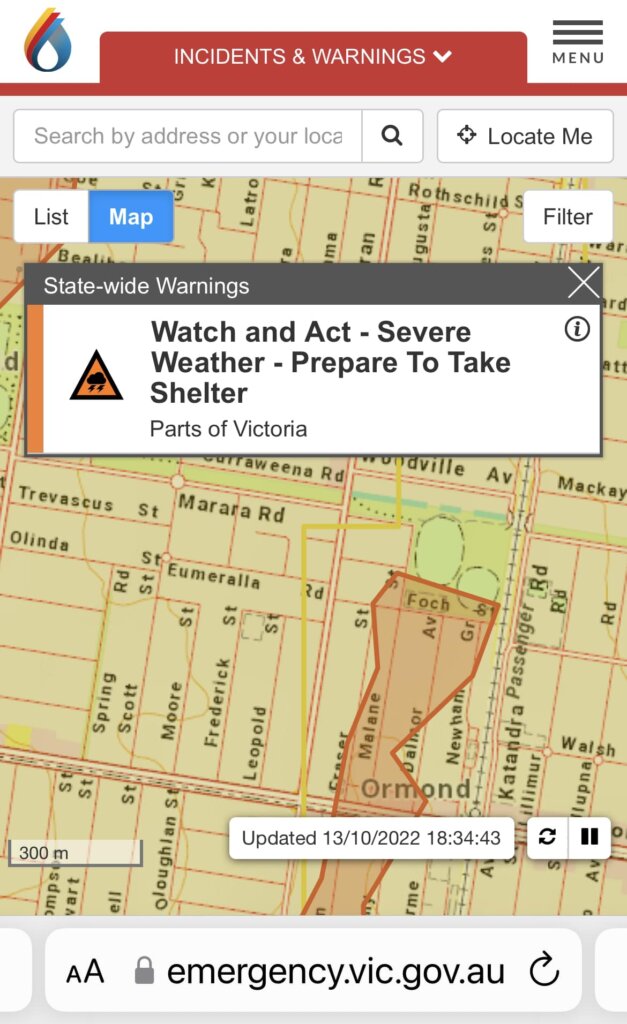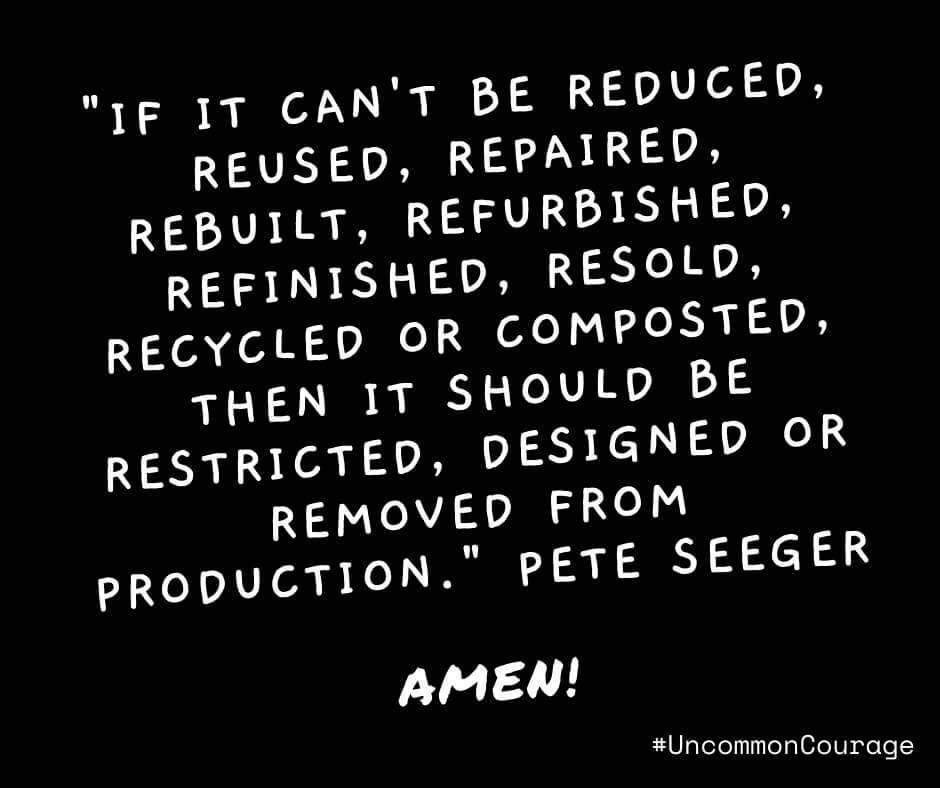Since July this year, I have personally experienced four extreme weather events on three continents – Europe, Asia and Australia. It’s been a very deep and powerful experience too. I’ve been studying the risks of the planetary crisis for well over a decade, and while I’ve been expecting what is happening, like most, I’m surprised at the colossal speed of escalation.
The climate emergency is here. It has started and it will only get worse until we seriously act. We can not deny this anymore.
It’s incredibly challenging to come to terms with this truth, and I have still not moved into full acceptance…. yet! I will get there, but it’s also why the message I’m sharing along with many others, is so urgent.
My friends, we have no time to lose. EVERY day that we delay transforming how we live and work, means what we face will be worse. What we are afraid to face today, is a lot more frightening to face tomorrow – that’s the point we’re at. Inaction and delay will only make it worse. I know it’s not a pleasant thing to hear, but this is where we are.
A quick recap on the four extreme weather events I’ve experienced.
The UK heatwave
There was a lot of mirth about the Poms not being able to cope with hot weather, however, being there, you fully appreciated how intense the heatwave was. The hottest day ever on record in the UK and it was mind-blowing… my mind has been blown a lot this year.
In the UK, homes and buildings are just not equipped for heat. Even the shopping centres – which are a cooling option in many parts of the world – are rarely built to cope with heat. Some trains had aircon, most didn’t, and the tracks buckled in the heat anyway. The infrastructure for the future is not even remotely ready, which should be a HUGE concern for all of us everywhere.
An example in the UK. The heat wave caused cracks in the water pipes across the country and these pipes are made of cast-iron. Just this is so overdue an upgrade. However, the bigger story is, because of privatization, no water infrastructure improvements have been made in the UK for 30 years. What a surprise when hit with drought!
The day before the heatwave, we bought two fans from a hardware store. Growing up in Australia and living in Asia for nearly 20 years, you know that even warm air, if it’s moving, helps you deal with the heat. We shouldn’t have been able to buy fans the day before a record heatwave – fans should’ve been sold out – but then, people in the UK do not understand how to deal with heat. They never had to. We left our fans with my in-laws for the next event, because there will be more heatwaves. And more. And more, unfortunately.
Super Typhoon Noru
Dubbed a super typhoon, Noru pummelled Japan and the Philippines and then the tail end of that storm caused a massive wet weather system across much of Asia. In Phuket, where we currently live, the warnings came in thick and fast, and not knowing what we would face, we secured everything to ensure we didn’t wake up to furniture flying down the hill.
While this event was nowhere near as bad for us as it was for those directly impacted by the typhoon (and it felt like we got away lightly) it was the first time I asked: are we safe? Is our house designed for this? What will we experience? What will we wake up to tomorrow?
Beyond us, I was more concerned for the people in our community. How will those living in the worker camps survive as most live in very basic homes? And how will everyone else cope, especially those in low lying areas? What about the impact on crops in the region and will it make the coming famine worse? Because crop failures have been significant across the world this year.
It’s the first time I felt this way. The very first time. Not knowing what we would face. It was surreal and a little frightening.
Australia floods
After nearly three years of pandemic separation, I got to catch up with my family and friends in Melbourne. Guess what? We landed right in the middle of another mega flooding event in Australia. The entire East Coast of Australia, from the Northern Territory to Queensland, New South Wales, South Australia, Victoria and Tasmania were all impacted. It was a massive extreme weather event that did enormous damage and upended a lot of lives. Another extreme weather event is moving through Australia right now, this time it’s a Super Cell.
As we were becoming aware of the extent of the flood and where the risks were, Jamie, my brother-in-law, showed me a map that put their home in the red zone of catastrophic flooding. We all went to bed that night not knowing what we would face – either while sleeping or when we woke up. We were ok. Many were not. That not knowing is something many have felt for the first time this year. It’s a very uncomfortable feeling.

Phuket floods
And on the 18th of October, I flew back into Phuket to the worst floods in more than 50 years. No one has seen anything like it before and it has devastated communities across the Island. People had to escape their homes and they’ve lost everything, with the water taking days to recede in many places, sometimes because the drainage just couldn’t cope. There have been landslides, roads washed away, homes washed away, at least one life lost, and many remain in desperate need.
Thankfully we have an amazing community in Phuket, who came together to help our neighbours during the pandemic, and again, we came together to help our neighbours in this crisis.
The first day back, I drove around my local area, because I wanted to understand what had happened and how bad it was. The hardest was seeing the workers camps waist high in water and they were forced to move into the local temples. Many friends also dealt with extreme conditions, and some were flooded out completely. If you watch this video, you can get a sense of the scale in my local area, but the floods hit Island-wide.
This fourth event for me has been very sobering. Like many, I’m doing what I can to help, but equally, I’m reflecting on the world we are moving into. The climate scientists have been predicting this for years, and while it’s hit earlier than even they were expecting, it’s here.
It’s time to take adaptation seriously
I want to talk about this more on The Know Show this coming Friday, 28th October (please do join), but there is one element to the bigger story I want to put out there.
We are not ready. We are not even remotely ready. No country is doing enough to get ready for what is to come and they cannot guarantee the safety of their people.
We are not voting in leaders with the guts to do what is necessary either – and that’s a big part of the challenge we face. We need a level of maturity, expertise, and a genuine service mindset, which is rare in politics today. It is time for us to vote in the right type of leaders, while also understanding we need to work with them to ensure they succeed. That is a critical piece of the solution we haven’t quite connected the dots on yet.
Equally, as a global community, we are not paying attention to the countries on the front line of the climate crisis. Have you heard about the floods in Nigeria? No? Hardly surprising because it hasn’t received the global media attention it deserves. Hundreds are dead and 1.4 million people have been displaced so far. It is a massive flooding event.
We are not doing even the minimum of what is required to help our neighbours in the southern latitudes, and we must do this, because ultimately it will help us. If we don’t address this crisis globally, we will be overwhelmed by climate refugees, and we are not ready for climate refugees at all. We must get ready for them, or so much misery will be unleashed, war and violence too.
We are now at the point where we must be thinking ahead, and we must plan for the future we are going to have, versus looking back at what was. There is far too much looking back and making decisions based on past data. It concerns me deeply.
It is time to demand that the politicians leading our countries start thinking long-term (and beyond short term election cycles) to plan and build infrastructure for the events climate scientists are predicting. This is not happening. They are also not speaking about doing it either. How do I know? I’ve been listening to the commentary from politicians around the world when extreme weather events hit. They don’t appear to have the language for the future yet. They will soon, but by then, many thousands or millions may die.
Just to give you a flavour, we need to fund projects like
- Road/rail infrastructure that can deal with extreme heat AND extreme flooding, including assessing landslide risks
- We need emissions-free transportation systems that get cars off the road – and no, EVs are not going to solve this. If we replace all cars with EVs, we can’t meet the deadline to cut emissions, because for an EV, it takes seven years to counter the emissions from its creation. We need less of everything. It’s time to rethink it all and transform how we move around. Safe bike and personal electric vehicle lanes are a simple start. If your city or town is not creating car-free spaces and building safe lanes for cyclists, it is not taking the climate crisis seriously
- Better design criteria for dams to reduce flooding, as well as reassessing the dams we already have. Water infrastructure must be a priority everywhere, because we need to secure our water sources. Mismanagement and corruption is a major issue with water, privatisation too
- We need to start thinking about which communities we need to move to safety, which might include whole cities or even state populations. Where will they go, how will it happen? Jakarta, Indonesia is already doing this
- We need to stop rebuilding in zones that will be hit again and again and again
- We need to move to higher ground (we did this a couple of years ago)
- We must address food security, which includes relocating primary crops to avoid famine, and we need to help farmers make this transition. We also need to ensure farm subsidies are used for transformation and are used effectively. Individually, it’s time to plant a garden
- However, we also need to switch on to the fact that a global famine has already begun (crop failures in the last year have been devastating) and it will get progressively worse over the next few years, so how are we going to deal with that? Is any country ready for this?
- We need to prepare our homes for 1.5C warming, which we will experience in the next five years. This is too-hot-to-live territory, an issue we saw this year! Research what wet bulb temperatures mean and know the risk where you live
- We need to stop chopping down trees. Deforestation is off the charts and hitting new records, with the Amazon close to its tipping point. We must address this urgently. Locally, we need to commit to planting trees in poorer neighbourhoods, so people have a chance of dealing with the coming heat. Let’s also focus on rewilding our world – the Europeans and the UK are well ahead here
I could go on and on. Essentially, it’s time we took it seriously and approached it within the context of the climate scientist’s research. It’s time to get ready and we have a lot to do.
An example of thinking for the future
Pakistan is still completely devastated and according to the UN, the water is not expected to drain for six months. BUT here’s the longer-term issue. Pakistan has 33 glacial lakes ‘assessed to be prone to hazardous glacial lake outburst flooding (GLOF). GLOF are sudden events which can release millions of cubic metres of water and debris, leading to the loss of lives, property and livelihoods amongst remote and impoverished mountain communities.’
If rebuilding in alignment with the climate scientists’ predictions, surely we see the certainty these 33 glacial lakes will break, and therefore, it’s critical no homes are rebuilt in the path of any potential destruction? Of course, with 33 assessed as hazardous, the whole country may be at risk, so what are we going to do about it? Will Pakistan be the first country that has to evacuate its population and migrate? Will everyone have to move to an area of the country not at risk?
Or will the mass migration come from Bangladesh, the Islands in the Pacific, the Maldives, Southern Europe, or all countries close to the Equator? Will it be cities? States? Territories?
Check out this Twitter thread, which asks the question:
Which major US city will be first to become uninhabitable due to climate change? Salt Lake City? Vegas? Phoenix? Miami? Answers and explanations please. Peter Dynes @PGDynes
Are you feeling the urgency too?
What’s the plan?
Where is the greatest risk?
What do we need to do right now to get ready?
Who are the leaders we need to get us there?
Even if we stop emissions today, it’s still going to keep getting worse long before it gets better, and the longer we delay, the less chance of it ever getting better.
So, what does that plan look like and how can we get ready to ensure the majority of people and life on this earth have a chance?
Read The Growth Fetish – Bella Caledonia great insight.
A quick final point. If we really want to do this, the ONLY chance we have of success is to come together and do this as a global community. If we do not unite, we cannot succeed. We need unity like we’ve never known before. Let’s fight for that? Let’s focus on building consensus for action across the world.
That’s what these extreme weather events have left me pondering on. It’s been a very humbling experience and I know we cannot beat nature, because it’s just so powerful when you witness its fury. You? What have you been thinking about?
As I often say, we decide to change, or nature decides for us. Either way a decision will be made.
Cheers
Andrea
Environment education
Three environment resources to help navigate this challenging territory. 1. Knowledge, constantly updating. 2. Individual action and awareness, so we do our part. 3. Resources for those struggling with eco-anxiety. Please share with your community.

Uncommon Courage: an invitation – my latest book
Uncommon Courage is an invitation to be your courageous best self every day. It’s also an antidote to the overwhelm, fear, and rage rolling around the world. But it’s more than a book; it’s an invitation to join an inclusive community that wants to better understand humanities challenges – both global and personal – in order to take courageous action and create a better world for everyone. If Covid19 has given us the time and space to reflect, Uncommon Courage gives us the nudge we need to create lasting change.
You can buy it on Amazon, Apple Books, Barnes & Noble, Book Depository, Booktopia, Smashwords, Kobo, Gardners, Odilo, Indie Bound, BookShop by BookTrib and Scribd.
Better yet, order it from your local bookstore, so you can #SupportLocal.
You can read the reviews, including a five-star review on Book Commentary, another five-star review on ReaderViews, a review on BookTrib, and three more on Booklife, another five-star review on Book Commentary and another on Blue Ink Reviews. I’m also collating reviews on my Website too. Have a look and grateful to everyone who has written or recorded one.
Come and join the conversation in my Facebook Group Uncommon Courage.
Uncommon Courage, the podcast, is on Apple, Spotify and everywhere podcasts are published, and keep your eyes peeled for my two live streams – The Know Show and Climate Courage.
The Know Show
Check out The Know Show. It’s a fortnightly wrap up of the news!
Climate Courage
A fortnightly livestream and podcast, discussing how we can all act on climate change. This week, we addressed excessive fashion consumption.
18 Steps to an All-Star LinkedIn Profile
Listed by Book Authority in the 100 Best LinkedIn Books of All Time and 22 Best New LinkedIn eBooks To Read In 2021 and 2022 categories. Grab it today if you want to take your professional presence to the next level! When it comes to LinkedIn, it really is time to ask — can you really afford not to have this book in the hands of every employee?
Connect with me
andreatedwards.com , uncommon-courage.com
LinkedIn, Twitter, Facebook, YouTube, Instagram, Tik Tok, Medium, Amazon.
Feedback
Have I done a great job for you? Can you write a reference on my LinkedIn profile or on my Google Business page? If not for me, why not write one for someone else who inspires you or has helped you? Join the #GivingEconomy.
Are you a Social CEO? The Social CEO: How Social Media Can Make You A Stronger Leader.
Want to claim your stage? Unleash Your Voice – Powerful Public Speaking for Every Woman




One Response